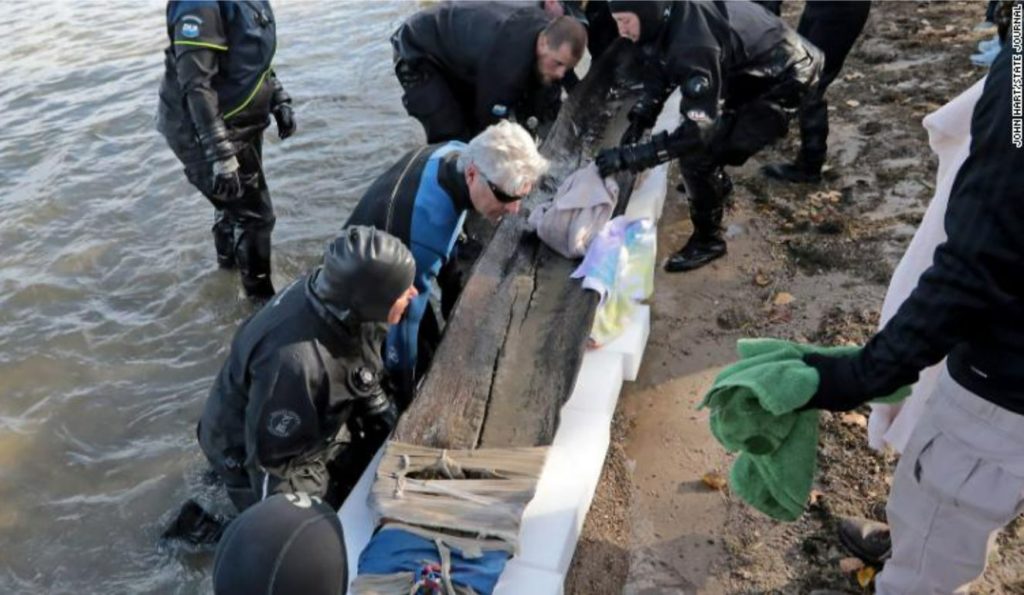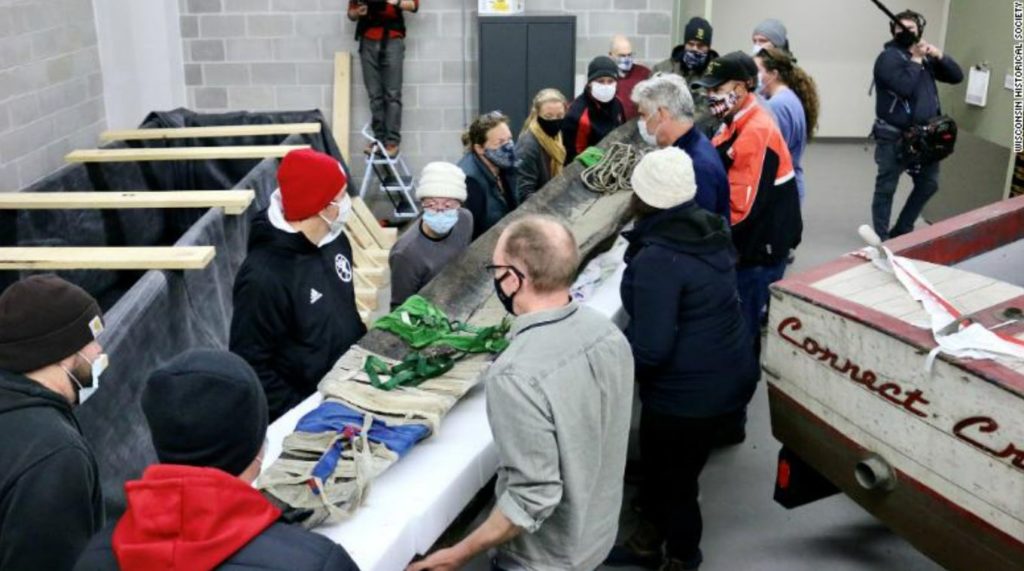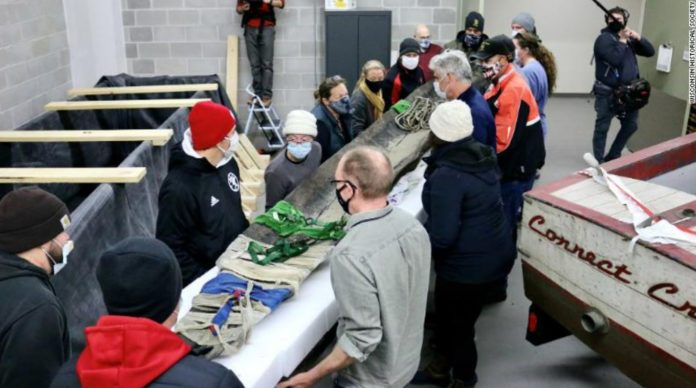The canoes were built by the ancestors of the Ho-Chunk Indian tribe, which mainly lived in the territory of modern Wisconsin.
In Lake Mendota, Wisconsin, The Dane County Sheriff’s dive team and the Wisconsin Historical Society team found a wooden canoe that is more than 1200 years old.
An underwater scooter ride in June with colleague Mallory Dragt and maritime archaeologist Tamara Thomsen, owner of Diversions Scuba at the Wisconsin Historical Society, revealed what they assumed was a log coming out of the bottom of the lake. Thomsen’s investigation revealed that the log in question was in fact a dugout canoe.

As it turned out, it was an ancient canoe. The result of carbon analysis showed that the find is more than 1200 years old.
“I looked at it and it was in such a wonderful state of preservation that I was very suspicious that it was old because wood typically doesn’t survive that long,” Jim Skibo, Wisconsin’s state archaeologist told CNN.

Carbon dating revealed that the canoe was probably built during the Effigy Mound Period, which was called for the mounds that ringed the lake.
Using a padded aluminium board and a trailer, the canoe was safely transported to the State Archive Preservation Facility where it will undergo two years of preservation treatments, the first of which will maintain the canoe’s liquid habitat in a tank that will kill any microbes or algae present in the canoe’s surroundings.

Polyethylene glycol will next be applied to the wood to protect it from damage, according to Skibo.
After that, it will be housed in the Wisconsin Historical Society’s projected expanded museum in Madison.
The finding was linked to the Ho-Chunk Indian tribe, who largely inhabit Wisconsin, were the people who made the dugout canoes that still stand in Dane County today. A common nickname for them is referred to as “People of the Big Water”.

“I’m an archaeologist who tells stories from artifacts, and this is a great one,” Skibo said.
“It’s about transportation. It’s about subsistence and fishing. It’s about all kinds of things about the time period, and I’m sure it’ll be an important display piece and museum.”
Image Credit: CNN
You were reading: US archaeologists find 1200-year-old dugout canoe belonging to Ho-Chunk Indian tribe
